Document 13441924
advertisement
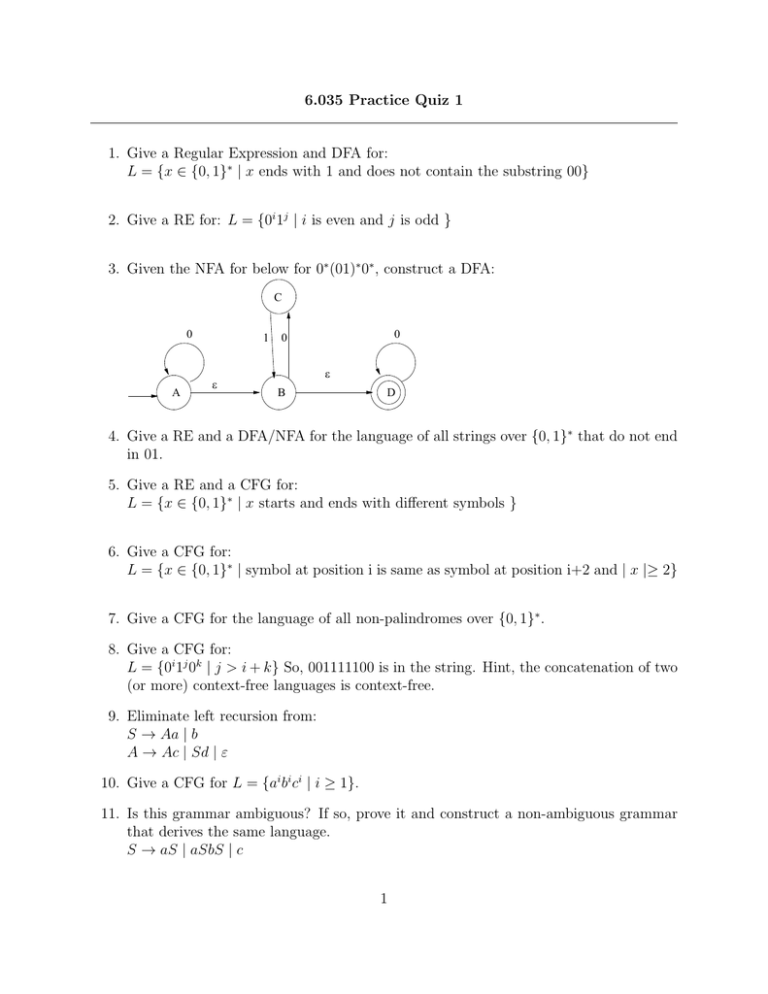
6.035 Practice Quiz 1
1. Give a Regular Expression and DFA for:
L = {x ∈ {0, 1}∗ | x ends with 1 and does not contain the substring 00}
2. Give a RE for: L = {0i 1j | i is even and j is odd }
3. Given the NFA for below for 0∗ (01)∗ 0∗ , construct a DFA:
C
0
A
1
ε
0
0
ε
B
D
4. Give a RE and a DFA/NFA for the language of all strings over {0, 1}∗ that do not end
in 01.
5. Give a RE and a CFG for:
L = {x ∈ {0, 1}∗ | x starts and ends with different symbols }
6. Give a CFG for:
L = {x ∈ {0, 1}∗ | symbol at position i is same as symbol at position i+2 and | x |≥ 2}
7. Give a CFG for the language of all non-palindromes over {0, 1}∗ .
8. Give a CFG for:
L = {0i 1j 0k | j > i + k} So, 001111100 is in the string. Hint, the concatenation of two
(or more) context-free languages is context-free.
9. Eliminate left recursion from:
S → Aa | b
A → Ac | Sd | ε
10. Give a CFG for L = {ai bi ci | i ≥ 1}.
11. Is this grammar ambiguous? If so, prove it and construct a non-ambiguous grammar
that derives the same language.
S → aS | aSbS | c
1
12. Assume that we have added a pointer type to decaf that can point to integers and
booleans. We want to extend our type system (our attributed grammar) to handle
these types. We have added a pointer(t) type to the type system to denote a pointer of
type t. Complete the semantic action that propagates the type attribute for a pointer
deference expression: E → ∗E1 {: E.type = ???? :}
Answers
1. (1 | 01)+
0
0,1
0
0
1
1
1
2. (00)∗ 1(11)∗
3. DFA:
0
ABCD
1
BD
0
0
1
1
ABD
CD
0
1
1
D
0
0,1
4. ε | 0 | 1 | (0 | 1)∗ (11 | 00 | 10)
2
1
1
1
0
0
0
1
0
5. [a(a | b)∗ b]|[b(a | b)∗ a]
S → aAb | bAa
A → aA | bA | ε
6. S → A | B | C | D
A → 00A | 00
B → 11B | 11
C → 10C | 10
D → 01D | 01
7. S → 0S0 | 1S1|D
D → 1A0 | 0A1
A →ε | 0A | 1A
8. S → ABC
A → 0A1 | ε
B → 1B | 1
C → 1C0 | ε
L is a concatenation of L1 L2 L3 where L1 = {0i 1i | i ≥ 0}, L2 = {1m | m > 0}, and
L3 = {1k 0k | k ≥ 0}.
9. S → Aa | b
A → bdA1 | A1
A1 → cA1 | adA1 |ε
10. Trick question, the language is not context-free. Sorry!
11. It is ambiguous! aacbc has two parse trees (not pictured, but you have to show the
two parse trees to prove it is ambiguous).
3
Unambiguous grammar:
S→T |U
T → aT bT | c
U → aS | aT bU
12. E → ∗E1 {E.type := if E1 .type = pointer(t) then t else type error;}
4
MIT OpenCourseWare
http://ocw.mit.edu
6.035 Computer Language Engineering
Spring 2010
For information about citing these materials or our Terms of Use, visit: http://ocw.mit.edu/terms.
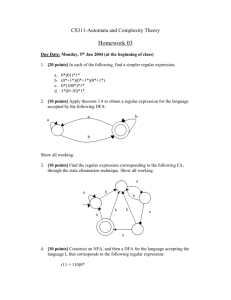
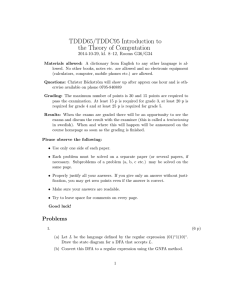
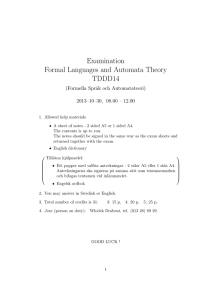
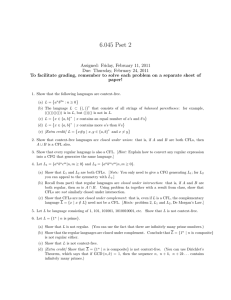
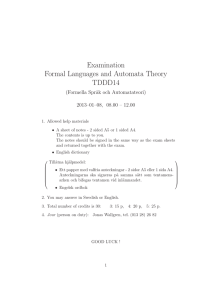
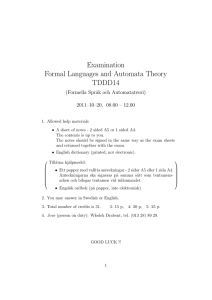
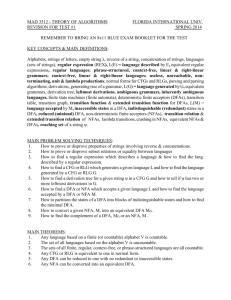

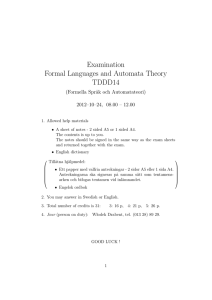
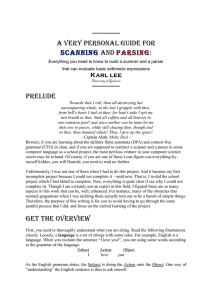
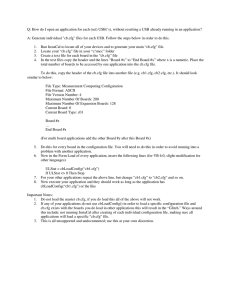
![Frankfurt_0412_short_4pdf [Kompatibilitätsmodus]](http://s2.studylib.net/store/data/018183819_1-17ef2e8844d334bcd4a0653841107961-300x300.png)